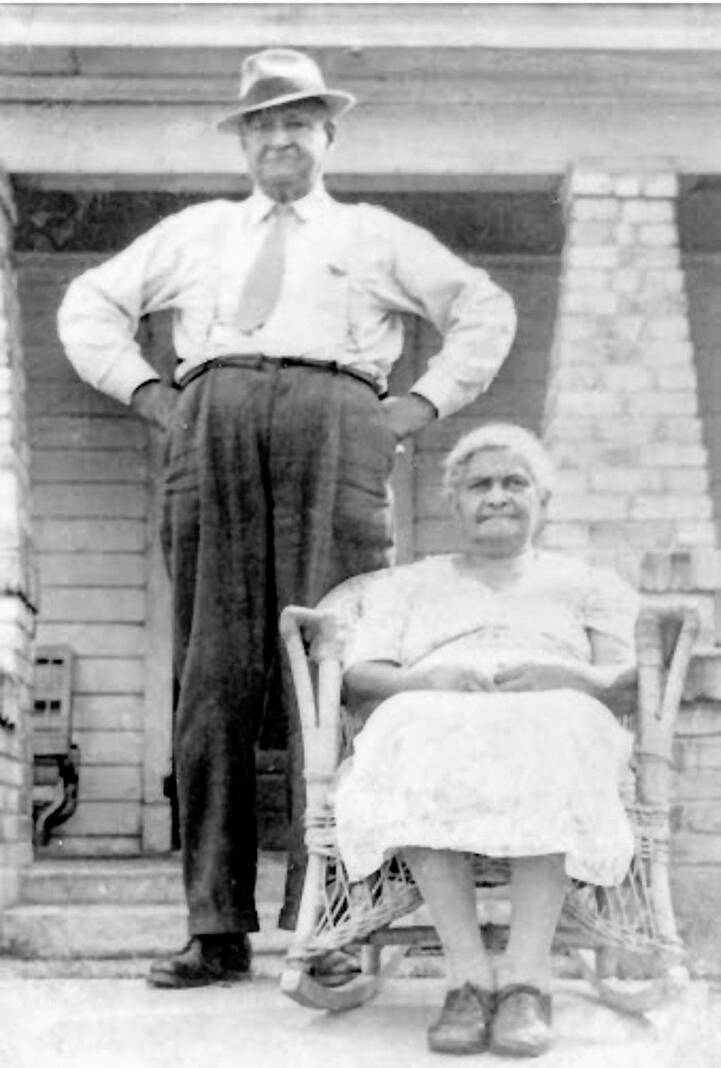
Editor’s note: The Urbana Black Heritage Festival will be held at Barbara Howell Park on June 18 from 10 a.m. to 6 p.m. at 213 E. Market St. This article is one in a series of Heritage stories leading up to the festival.
______
When David Leander “Bus” Hill retired from the Urbana Police Force after 42 years of service, he did so as an icon of the city. Born on January 18, 1868 to Effie Moss and Civil War veteran Samuel Hill, young Bus Hill sought to quench his thirst for adventure by joining the circus and traveling America as a drummer with the nation’s second largest circus, the Sells Brothers Circus. After a few years of touring with the likes of Pawnee Bill, Bus added his rich tenor voice to the famed Fisk Jubilee Singers. The singers traveled throughout the post-Civil War South bringing song and inspiration to thousands of newly-emancipated Black American citizens.
The call of home and love, however, pulled Bus back to his hometown of Urbana. On March 4, 1889, 21-year-old Bus married his sweetheart Keren Andrews. Alongside his father-in-law Thomas Andrews, Bus and his younger brother Charlie took employment with the Urbana Tannery on Water Street. Bus and Keren quickly started a family and eventually welcomed seven children: Rovilla, Eva Marie, Keren Vivian, Marjory, Leona, Charles Leander and Alberta. Not unusual for the era, Bus and Keren outlived three of their children, Eva Marie, Marjory and Leona. Their only son Charles went on to become Dr. Charles Leander Hill, president of Wilberforce University.
So many people in Urbana called him Bus that most did not realize his name was actually David. Bus earned his nickname as a young child, roaring with laughter each time his young aunt came home from the old “Colored School” to repeat the mispronunciation of a poem by one of her classmates:
Sing a song of sixpence, a pocket full of rye
Four and twenty blackbirds baked in a pie
When the pie was opened, the birds began to sing
Wasn’t that a dainty dish to set before a king!
Only instead of saying “when the pie was opened,” the young boy said “when the pie BUS opened.” For young David, the poem was a hit and from then on his family started to call him Pie Bus. As he grew, it became just Bus.
When Mayor Charles Ganson persuaded Bus away from the tannery, Bus became only the second black citizen to serve on the force and would go on to become the first to earn a pension. He first donned the badge in 1896 in an era before the automobile when he and the other officers ran down each crime on foot and collected drunks from the saloons in wheelbarrows. Bus survived several gunshot wounds and scrapes, and earned the respect of all townspeople. In failing health, Sergeant David Leander “Bus” Hill hung up his badge officially on December 31, 1938.
On April 13, 1942, David Leander “Bus” Hill passed away in his Hill Street home. (It is believed Hill Street was actually named for a white blacksmith named Edward Hill who had a shop just off of South Main. However, Hill Street was largely a residential street home to some of Urbana’s most prominent African American families in the 19th and 20th centuries.)
Bus Hill would be followed in death a year later by his loving wife Keren. Bus and Keren Hill are buried in Oak Dale Cemetery surrounded by their family.


